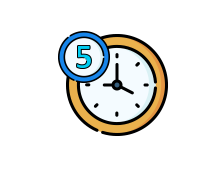Maths Year 12
September: Solving Quadratic Equations, Quadratic Inequalities, Straight Line Geometry, Equation of a Circle, Circles and Straight Lines, Brief Overview of: Indices and Surds, Modelling in Mechanics
October: (Cubic, Quartic and Reciprocal Graphs), Dividing Polynomials, Factor Theorem, Pascals Triangle, Binomial Expansion, Extremely Brief overview of: [Completing the square, Quadratic Graphs, Quadratic Simultaneous Equations], Constant Acceleration
November: Transforming Graphs, Trigonometry (Sine Rule & Cosine Rule), Area of a Triangle, Graphs of trig functions, Trigonometric Ratios, Trigonometric identities, Forces and Motion
December: Differentiating 𝒙n, Differentiating Quadratics, Gradients Tangents and Normal, Second Order Derivatives, Stationary Points, Modelling with differentiation, Variable Acceleration
January: Integrating 𝒙n, Indefinite and Definite Integrals, Areas under curves, Areas under the 𝒙-axis, Areas between curves and lines, Data Collection
February: Vectors, Magnitude and Direction, Position Vectors, Solving Problems with vectors, Using vectors to solve geometrical problems, Data processing, presentation and interpretation
March: Exponential Functions and Modelling, Logarithms, Laws of Logarithms, Solving Equations using Logs, Probability
April: Statistical Distributions and Hypothesis Testing, RECAP of any challenging topics
May: Revision
Maths Year 13
September: Partial Fractions (with repeated factors), Modulus Function, Composite Functions, Inverse Functions, Transformations and Combining Transformations, Modulus Problems, Further Kinematics
October: Arithmetic Sequences and Series, Geometric Sequences and Series, Binomial Expansion, Forces and Motion part I
November: Introduction to secant, cosecant and cotangent, Graphs of the introduced functions, Identities, Inverse Trig Functions, Addition Formulae, Forces and Motion part II
December: Differentiating (trig functions, exponentials, logs), Chain Rule, Product Rule, Quotient Rule, Parametric Differentiation, Implicit Differentiation, Rates of Change, Moments
January: Integrating 𝒙n, Indefinite and Definite Integrals, Areas under curves, Areas under the 𝒙-axis, Areas between curves and lines, Data Collection
February: Solving Differential Equations, Modelling with differential equations, Probability and Conditional Probability
March: 3D Vectors, Solving geometric problems with vectors, The Normal Distribution part I
April: Double Angle Formulae, Solving trig equations, acos 𝒙 + bsin 𝒙
May: Revision













